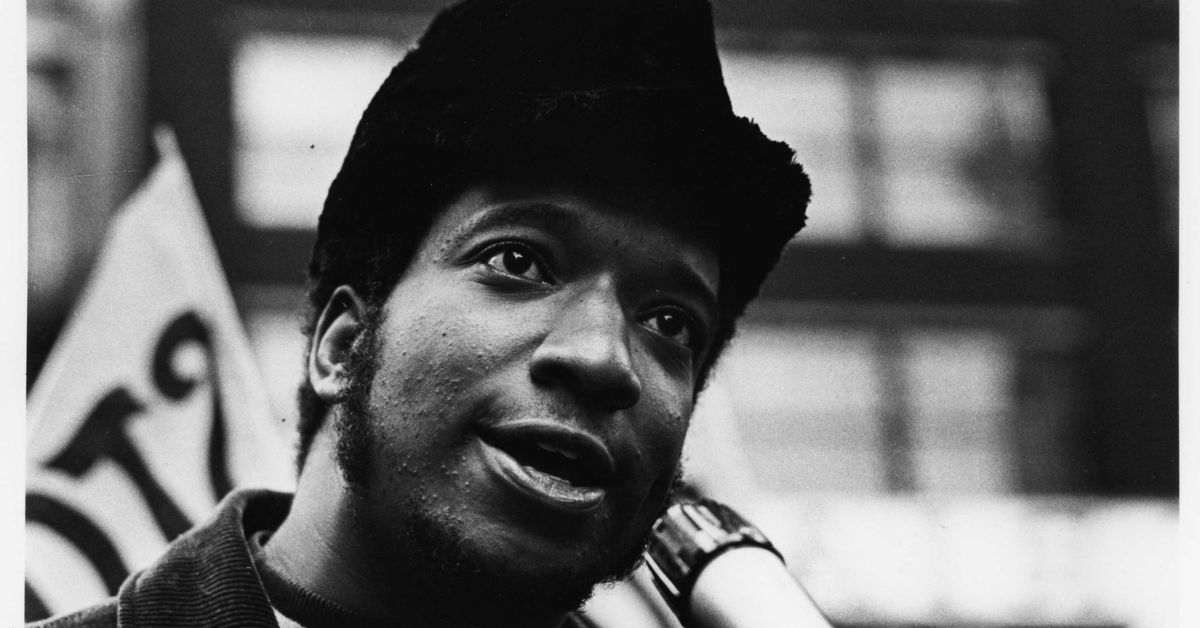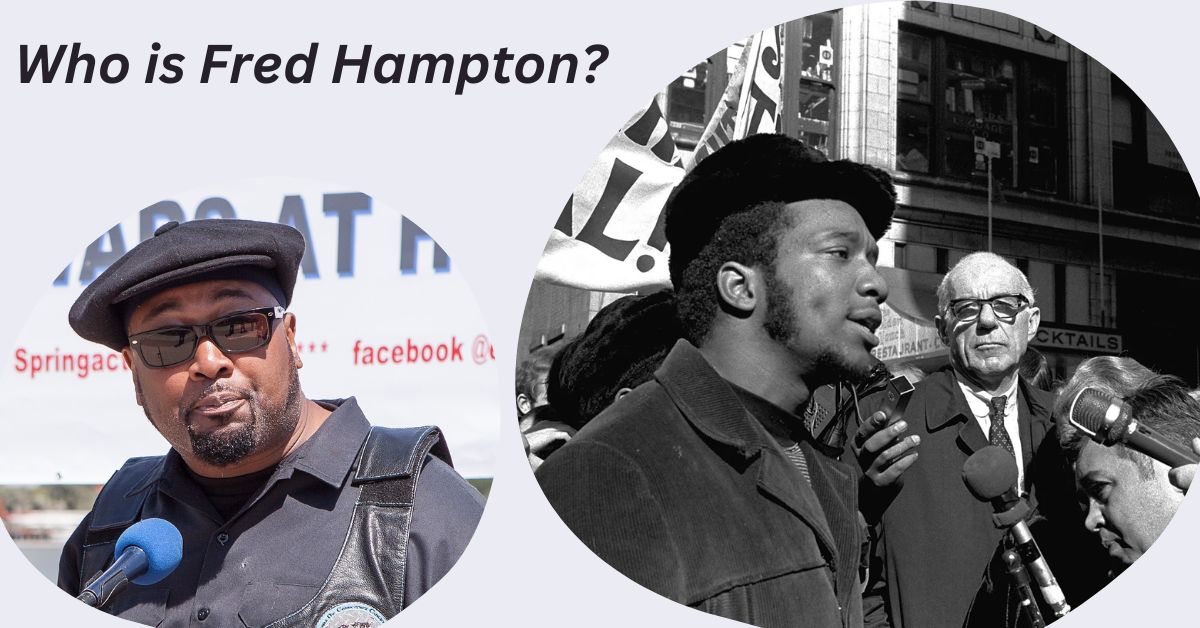Fred Hampton, or Frederick Allen Hampton, was an American civil rights advocate who founded the first “Rainbow Coalition” for Chicago. He was born August 30, 1948, in Chicago, Illinois, and died December 4, 1969, in Chicago. Hampton was slain by Chicago police when they raided his home.
Fred Hampton, Francis and Iberia Hampton’s youngest child, was raised in the Chicago suburbs alongside his siblings. Iberia had babysat a black youngster named Emmett Till who was known to his family. Till was lynched by local white men in 1955 while visiting family in Mississippi.
Fred was acutely aware of racial injustice because of the Hampton family’s link to Till and their encounter with racial injustice in their suburban neighborhood. To help white students confront racism, Hampton served on his school’s Interracial Cross Section Committee while he was a high school student in Maywood, Illinois.
He organized a student chapter of the NAACP and spoke out against Eugene Moore’s unjust arrest, a classmate who would become the first Black state representative in the neighborhood. Hampton enrolled in a pre-law program at Triton College, a public community college close to Maywood, after receiving honors in high school.
In the summer of 1967, Hampton participated in (or, by some accounts, led) several demonstrations to call for developing a racially integrated public swimming pool in Maywood. Only white swimmers were allowed at the closest public pool in Melrose Park, about two miles (3.2 kilometers) away.
While still a student, Hampton planned outings to the neighborhood’s integrated public pool for black kids, which was about 5 miles (8 km) away. Protesters and local police fought when store windows were shattered and a shed was set on fire at one rally. Although it is still unknown who caused the damage, Hampton and 17 others were accused of unruly behavior and mob action.
Nevertheless, the protests eventually succeeded in their aim: Maywood’s integrated pool was approved. Hampton left the conventional NAACP in 1968 and became one of the founding members of the Black Panther Party after having a string of unfavorable, occasionally violent encounters with the police during rallies and protests.
Huey P. Newton and Bobby Seale established the party in Oakland, California, two years earlier, with the initial goal of organizing patrols of black neighborhoods and shielding locals from police abuse.
More News:
- The Feds Say That Nursing Schools In Florida Sold 7,600 Fake Degrees Worth More Than $100 Million
- What We Know And Don’t Know About What Happened To Kill Tyre Nichols
It swiftly developed into a Marxist revolutionary movement that demanded arming African American communities, compensating African Americans for the centuries of exploitation they had undergone and excluding them from the conscription process. According to FBI director J. Edgar Hoover, the Black Panthers were “the greatest threat to the internal security of the country.”
The success of the program drew the attention of FBI Director J. Edgar Hoover who said the Panthers were "the greatest threat to the internal security of the country" because of their Free Breakfast Program. pic.twitter.com/2neTtupCOv
— AFRICAN & BLACK HISTORY (@AfricanArchives) June 2, 2022
The FBI kept an eye on the Chicago Black Panthers as soon as they got going. Hoover thought that Hampton might be the “messiah” who would threaten society—a figure who would “unify and electrify the militant black nationalist movement.” As potential agitators, Stokely Carmichael, Elijah Muhammad, Martin Luther King, Jr., Malcolm X (before his murder), and Martin Luther King, Sr. were also mentioned.

At the site of the Chicago Black Panthers’ founding, the FBI was represented by informant William O’Neal, an African American kid who had recently stolen a car, driven it while intoxicated, and crashed it.
O’Neal (hired as the Illinois chapter’s security director) gave the FBI reports about Panther meetings, member access to weapons, and home floor plans—with a particular focus on Fred Hampton—in exchange for dismissing the ensuing accusations against him.
The Illinois chapter started community service initiatives in Chicago, including a free medical clinic and a complimentary breakfast program for kids, with Hampton serving as deputy chairman. The USDA’s extension of its positive breakfast program and the development of the national School Breakfast Program, both of which were authorized in 1975, were both inspired by the latter.
However, Hoover thought that the inspiration had originated from the wrong place. In San Francisco, California, a rumor spread that the food was infected by venereal disease; in Richmond, Virginia, FBI agents alerted parents that the Panthers were using the meals to teach racial division. A former Panther claimed that the night before the Chicago complimentary breakfast program was supposed to begin:
“the Chicago police broke into the church where [the Panthers] had the food and mashed up all the food and urinated on it.”
The program’s opening was delayed, but the vandalism inspired support from the community. Hampton used his communication skills to bring together the Panthers with other organizations based on racial, ethnic, or ideological connection to form what he called a “Rainbow Coalition.”
The Puerto Rican Young Lords Association, the Poor White Young Patriots Organization, and the Blackstone Rangers street gang were among the groups that the Rainbow Coalition brought together and, by pooling their various resources, helped low-income residents.
During Hampton’s brief presidency, the Panthers and the Chicago Police Department frequently engaged in combat, leaving both sides with losses. The violence came to a head on December 4, 1969, when a 14-person police raiding squad entered Hampton’s flat on Chicago’s West Side.
The authorities suspected that the apartment—which frequently acted as a de facto headquarters for the Panthers—would disclose a stockpile of weaponry, including illegal rifles, after receiving the floor layout from the FBI via the informant O’Neal. Hampton and his colleague Panther Mark Clark were killed after the attack.
The apartment’s firearms were taken, but they were never correctly identified. The raid’s survivors, including Deborah Johnson (after known as Akua Njeri), Hampton’s pregnant common-law wife, were detained on charges of attempted murder, aggravated violence, and criminal possession of a weapon.
Later, it was discovered that the police fired all but one of the almost 100 rounds fired during the raid. Njeri recalled in interviews that she had tried and failed to get Hampton up by the time the police arrived, and despite numerous attempts to wake him up throughout the raid, he remained asleep.
After two first toxicology tests revealed no barbiturates in Hampton’s system, O’Neal later asserted that neither he nor anyone else had given him any drugs. However, a second independent autopsy discovered that his bloodstream had a toxic concentration of barbiturates.
Njeri claims that after the police took her out of the bedroom she shared with Hampton, she overheard one officer say that Hampton was “barely alive” before hearing two rounds and the second officer said, “He’s good and dead now.” None of the policemen, agents, or officials engaged in the raid were ever found guilty of a crime.
However, Hampton and Clark’s families and the raid survivors eventually got a settlement payout of $1.85 million from the city of Chicago, Cook county, and the federal government. Cook county state’s attorney Edward Hanrahan was fired due to the outcry over Hampton’s death, particularly in Chicago’s Black community.
Hanrahan’s office had been in charge of the police officers participating in the raid. Hanrahan had been considered a strong candidate for Chicago mayor before the attack, but his political career was terminated entirely when he was ousted from office in 1972. The Chicago City Council declared December 4 to be Fred Hampton Day in 1990 and once more in 2004.
The FBI’s COINTELPRO campaign, a covert effort to discredit and dismantle groups that the agency deemed subversive, had targeted Hampton.
A seat on the Black Panthers’ central committee, where his charm and gift for public speaking would have undoubtedly made him a national figure—and therefore even more unstable to Hoover’s idea of the status quo—would have likely been given to Hampton had he not been slain.
I hope you like our article. If so, please tell us what you think in the comments. You can also add Journalistpr.com. to your bookmarks to get more updates like these.

Leave a Reply